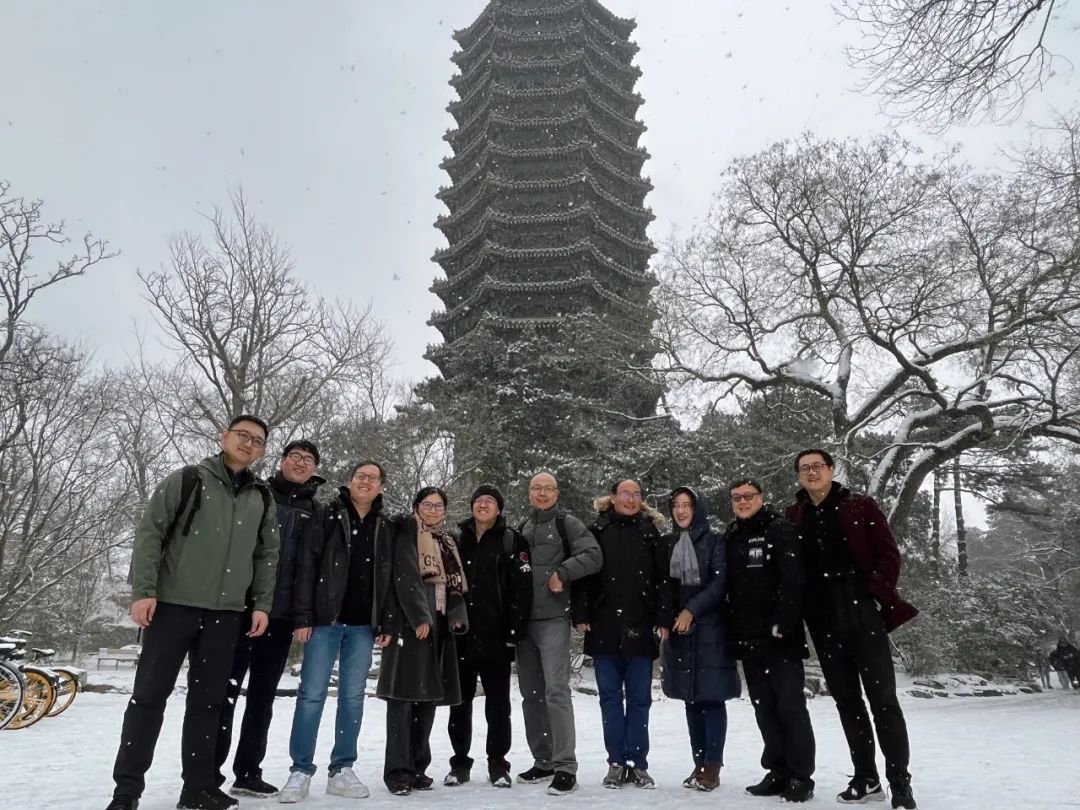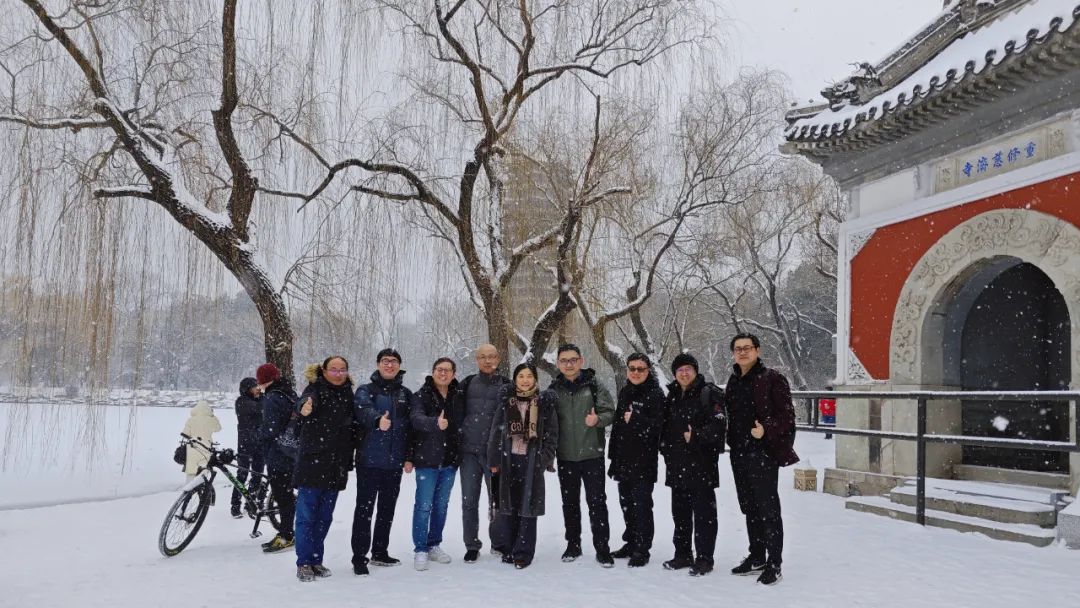OSS Compass Board Members Exploring the New Value of the Community in Peking University
On the morning of December 13th, OSS Compass (hereinafter referred to as "Compass") community board held its fourth-quarter meeting at Peking University to explore the community's new value. The meeting was attended by 10 board members, including Minghui Zhou from Peking University, Xianping Tao and Liang Wang from Nanjing University, Hong Shu from OSChina, Hongwei Ma from Baidu, Kun Gao and Yehui Wang from Huawei, Zhongyi Tan from StarTogether Community, and Wenxuan Long from Checode attending the meeting in-person, while Shengxiang Zhang from OSChina participating in the meeting online. Three board members were absent due to unforeseen circumstances.
01 Yehui Wang Reporting the Latest Developments of OSS Compass
Yehui Wang, board member of Compass community and co-chair of the technical committee, first reported the latest technological developments of Compass, including:
● Upates of open source evaluation system: establishing a three-dimensional evaluation space based on the directions of "Productivity, Robustness, Niche Creation" and "Software, Collaboration, People", and adding three contributor models.
● Updates to SaaS services: the launch of "Project Deep Dive Insight Solution" and "Compass Collaboration" features. Project Deep Dive Insight Solution includes detailed information on contributors, issues, pull requests (PRs), etc. Compass Collaboration already includes active predictions for open source projects from Nanjing University, and the intelligent recommendation tool GFI-Bot for beginner tasks, the intelligent recommendation tool MigrationAdvisor for library migration, the LicenseRec tool for open-source software license recommendations from Peking University, and the bug-catching tool for reading documentation of openEuler community.
● Updates to the homepage of the official website, including the three-dimensional diagram of the evaluation system, calendar, blog posts, and ongoing comprehensive updates to the documentation page.
● Replacing the Gitee Index with Compass evaluation solutions, which is expected to be completed by January, 2024. Until then, the Gitee index and Compass evaluation solutions will coexist on the Gitee platform.
02 Suggestions from the Board Members on the Updated Features of OSS Compass
Subsequently, the board members provided the following suggestions regarding the feature updates:
● Comparative analysis results among open source communities need verification, and it is better to identify the common phenomena, and make explanations of underlying principles for universal guidance in community development.
● Hierarchical access control is needed for the Project Deep Dive Insight Solution's data viewing permissions.
● Privacy authorization issues related to data collection should be handled to ensure compliance with data usage regulations.
The board members also mentioned that OSS Compass should cater to different needs at different levels, i.e. be forward-looking while providing specific solutions for different user groups, and maintain neutrality.
03 Proposal from Nanjing University
In addition, Professor Xianping Tao and Professor Liang Wang from Nanjing University proposed a discussion on "how to achieve an open source project measurement-feedback-improvement cycle based on the OSS Compass evaluation metric system". The proposal was discussed among the board members, and it was unanimously agreed that the board members from enterprises could select their own open source projects, evaluate them using OSS Compass and make improvements based on the results. These cases would then be compiled and publicly promoted to attract more communities to participate in this cycle.
04 Future Plans for OSS Compass
Finally, the board members reached a consensus on the future plans for OSS Compass:
● Promoting the use of the open source evaluation solution of OSS Compass to establish factual standards for open source evaluation.
● Deep collaboration with CHAOSS next year to jointly create international standards for open source evaluation.
● Core data can be obtained through project collaborations.


Photos of the board members taken on the campus of Peking University after the meeting